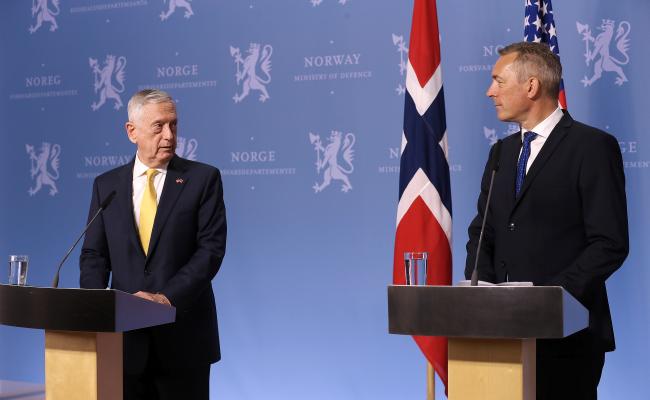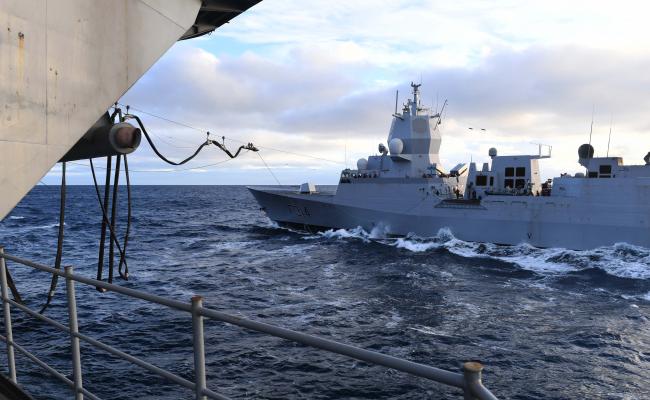Commentary: People, politics, and participation: What can we learn from the Barents region?
Dr Ingrid A. Medby is a senior Lecturer in Political Geography at Oxford Brookes University. (Photo: TAI)
"As images of American citizens storming Capitol Hill in the conviction that their rights, votes, and power have been “stolen”, this is more relevant than ever: Politics is nothing without the people", writes Ingrid A. Medby.
Although many were likely glad to see the end of 2020, it took less than a week to remind us that challenges and conflicts do not evaporate with the smoke of fireworks (unfortunately).
Old divisions and new inequalities, old ideologies and new conspiracy theories offered a potent admixture in Washington D.C. on 6th January. From the other side of the Atlantic, many of us streamed the events online in horror:
How had it come to this, and how to respond?
Relations in the Arctic have fortunately not been touched to the same dramatic extent by the political turbulence of recent years. Although US Secretary of State Mike Pompeo’s speech at the Arctic Council Ministerial (and indeed recent tweets on the topic) certainly left their mark in the Arctic political community, the region has otherwise not grabbed many headlines.
Perhaps in a time of a global pandemic, coup-attempts, and breaking out of old unions, it is a good thing that Arctic relations are not quite at the top of the news agenda.
Many would say that the Cooperation is considered a success.
And perhaps, for once, we can instead look north to consider what can remain stable, what progresses, and even what thrives when the political weather turns stormy elsewhere.
Among the many initiatives and projects that have persisted through this year of crises is the Barents Cooperation, now in its 28th year running. The Barents Cooperation was initiated in 1993 by then-Norwegian Minister of Foreign Affairs, Thorvald Stoltenberg.
In the wake of the Cold War, the idea was to strengthen cross-border relations in the European Arctic region, specifically between Russia, Norway, Sweden, and Finland.
This was to be achieved through people-to-people contact: in other words, facilitating meetings, collaborations, exchanges, and friendships between local communities in the north.
The initiative was marked by a great deal of optimism and energy at the time, and has later been both written about and assessed from a number of perspectives.
Also read
In broad brush strokes, many would say that the Cooperation is considered a success, but that some of its original aims have not come to fruition.
People in the border regions have been able to travel, meet, and get to know their neighbours – and continue to do so today. Political ties have been strengthened, and cooperation now takes place on a number of issues.
Nevertheless, trade and business cooperation between the Nordic states and Russia remain a challenge, and a true “Barents” consciousness does perhaps not extend as far from the border as many had originally hoped.
What the Barents Cooperation offers us today, however, is an example of an often overseen – but arguably highly valuable – initiative that puts local people at the centre of so-called geopolitical relations in the north.
As images of American citizens storming Capitol Hill in the conviction that their rights, votes, and power have been “stolen”, this is more relevant than ever: Politics is nothing without the people.
Looking at the Barents Cooperation and region – far from capitals and elites – it is worth taking pause to consider what we can learn from it: Are there any transferable lessons from this long-running initiative that can aide us in this difficult present?
That question was what drove a research project I have been working on in the last year, and the reflections offered by participants involved in the Barents Cooperation all seemed to agree on one thing:
The answer must be “yes”, people-to-people contact and collaboration is one important condition for peace. In other words, getting to know and learning to understand your neighbours – even if you disagree, even if you are different – means that stereotypes are broken down and trust can be built.
And being heard and allowed to participate, means that smashing governmental windows and looting property become far less tempting or indeed possible options.
These are lessons that extend far beyond the Barents region and far beyond border-relations. Facilitating dialogue, building understanding, and creating new channels for diverse voices to be heard, will all be necessary to not only re-build democracy in the USA but across the world.
And may the new year be one where the world can look northwards for a welcome example of political participation and positive change.
Disclosure statement
Ingrid A. Medby received funding from The British Academy 2019-21 for the project “Bridge-Building in a Divided High North: Perceived socio-political outcomes of the intraregional and 'people-to-people' initiative, the Barents Cooperation” (SRG1819\190148)



